Turns out to be a Oncotympana Maculaticollis.
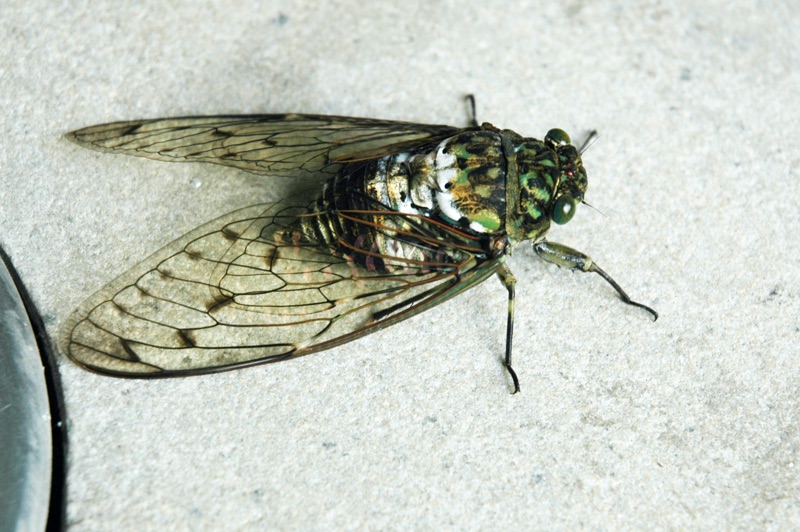
Locations where cicadas can be found, including countries and continents.
Turns out to be a Oncotympana Maculaticollis.

We have a new gallery, our first from Spain. Tibicen plebejus by Iván Jesus Torresano García. 51 photos in all.
Here’s a sample:

Here’s a break in the Magicicada mania: a Diceroprocta vitripennis. This photo was taken by Cicada Mania regular Paul Krombholz in Jackson Mississippi just last week. Cicadas like Diceroprocta vitripennis are annual cicadas: they emerge each year in small numbers, and as you can see, they rely on camouflage for survival. Annual cicadas are also quite shy compared to the periodic Magicicadas — they have very different life strategies. American annual cicadas rely on stealth and cunning to survive while searching for a mate. Periodic cicadas rely on the fact that there are so many of them, that some will always survive to carry on the species.
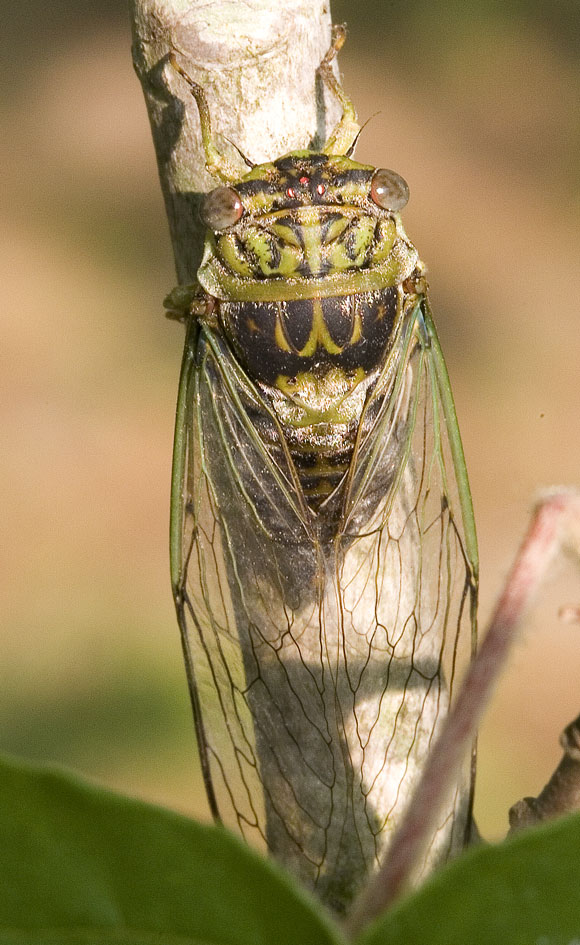
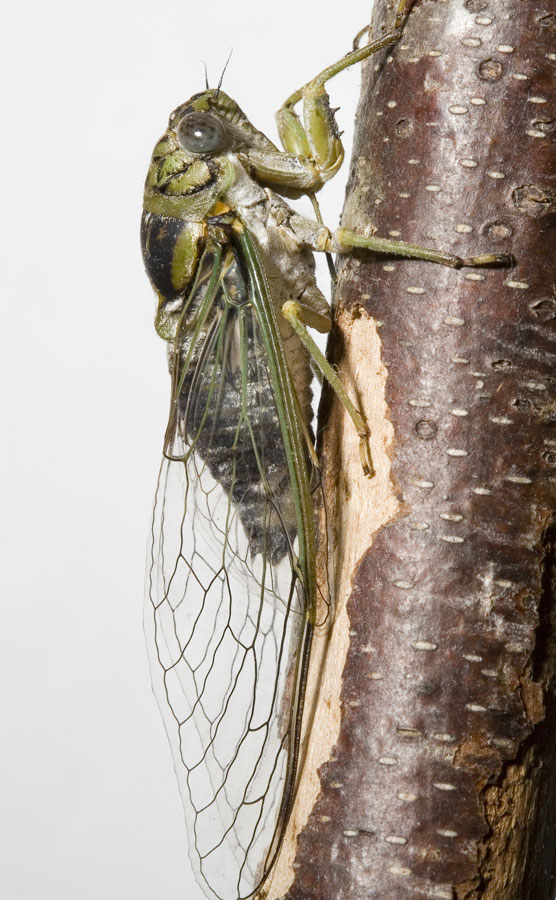
Notes from Paul:
I am continuing this season to try to get pictures of all the cicadas in the
Jackson, Mississippi area. I just got a female specimen of Diceroprocta
vitripennis. I found it in low vegetation on a sand bar next to the Pearl
River. Thanks to John Davis and the collectors at the Mississippi Museum of
Science for the tip on where to look for them! From head to wing tips, it
is 38 mm, but the wings of this species are longer in relation to body
length than those of Tibicens. Body length of this vitripennis was only
22mm.
A quick break in the Brood XIII action:
A website about Japanese cicadas (Semi). It’s interesting to see all the different varieties of cicadas that exist around the world.
Many, many photos of Japanese cicadas thanks to Google photo search.
insects from the forests of Chiang Mai is an excellent website featuring many photos and audio recordings of cicadas from Thailand. If you want to explore cicadas around the world, it’s a great place to start.
Santisuk Vibul’ s Cicada Photos of Genus Dundubia from Bagkok, Thailand:
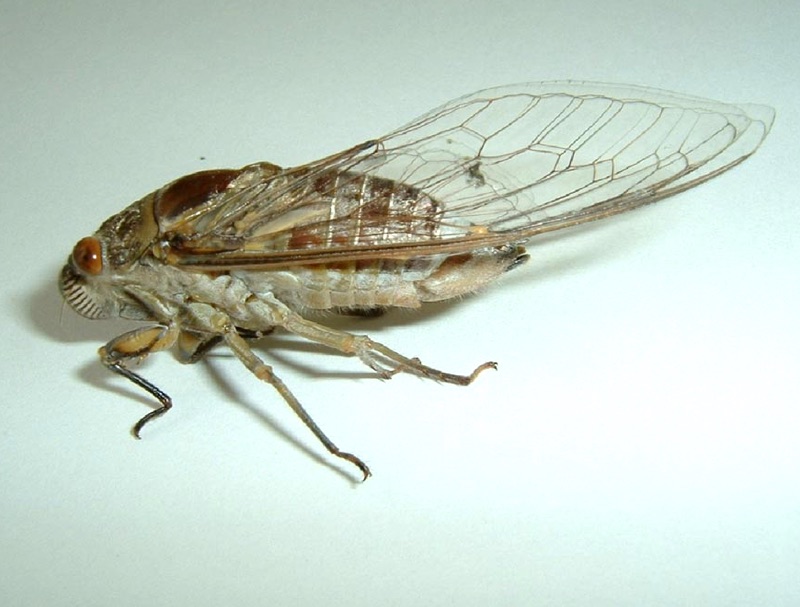
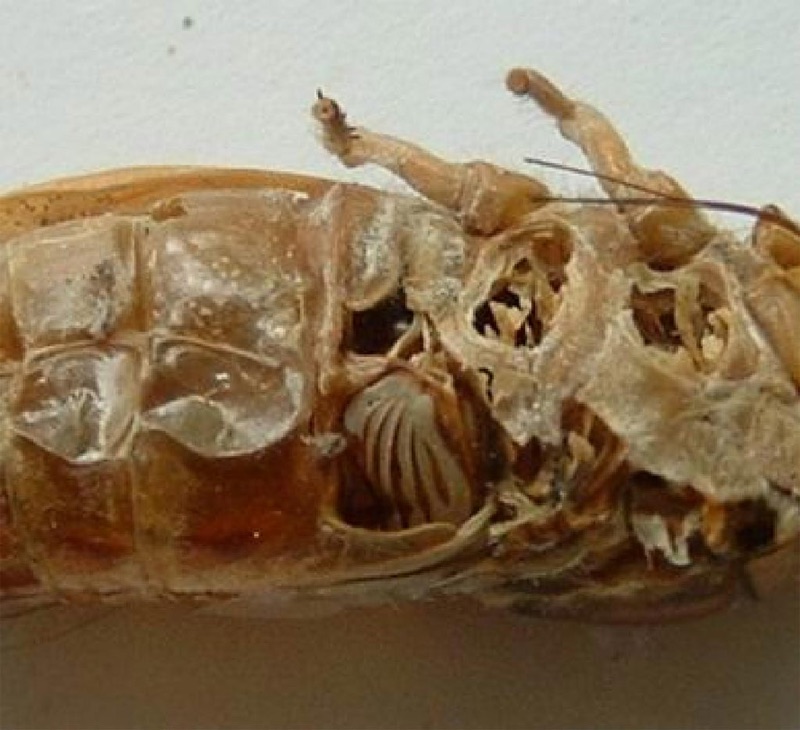
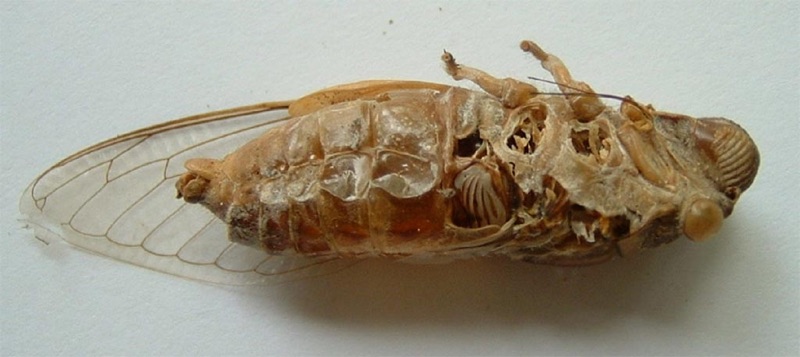
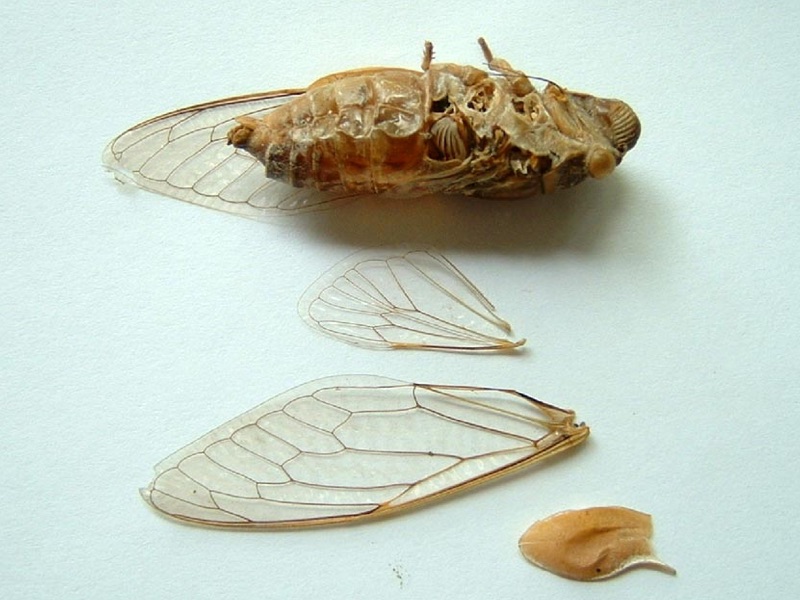
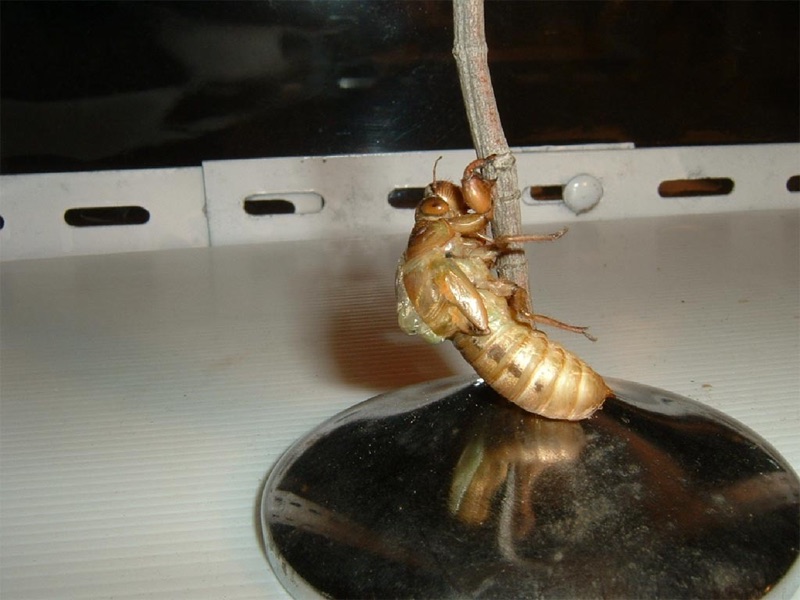
Michelle Thompson took this picture of a cicada on the trunk of her oak tree in Willoughby in Sydney Australia. It’s a Floury Baker aka Aleeta curvicosta.
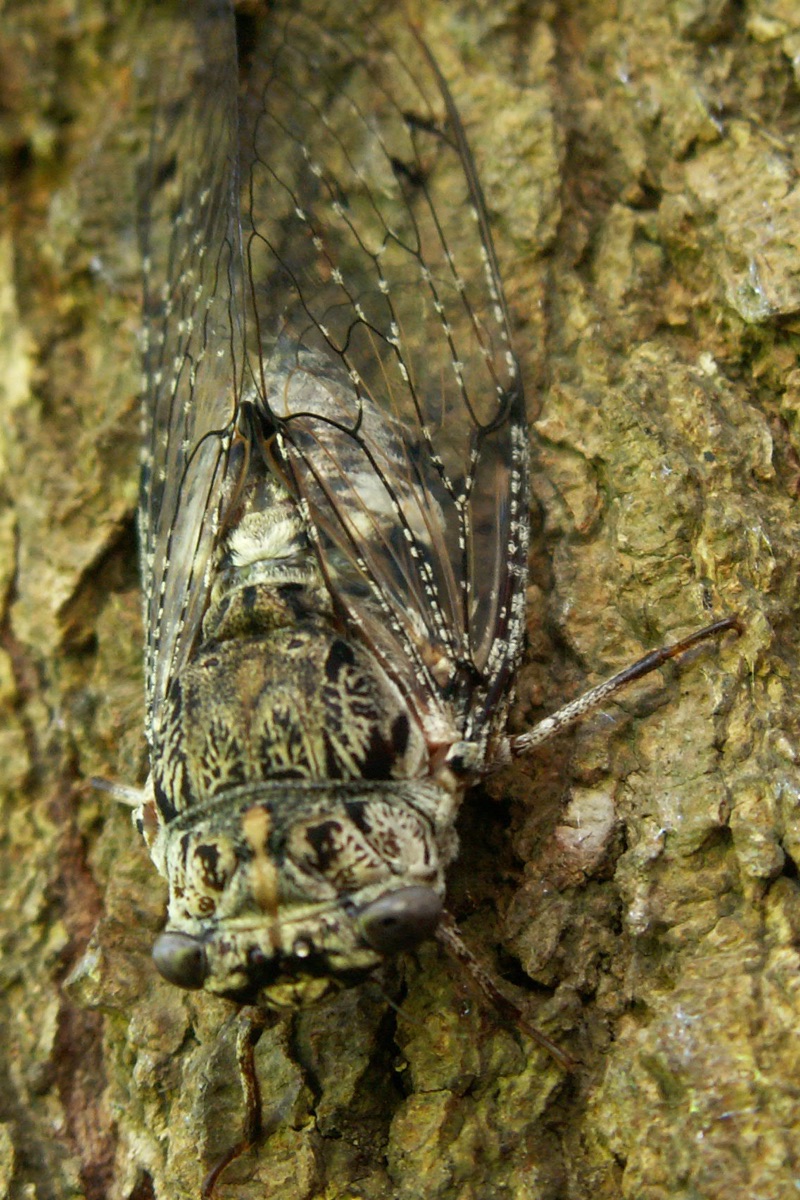
George Dalidakis emailed us this fantastic series of a Green Grocer cicadas (Cyclochila australasiae) emerging from its nymph exoskeleton (molting).
Did I post this already?
Here’s a wonderful series of cicada photos from Pierre Guilhaumon titled La cigale déploie ses ailes.
The photo below was taken by Jon Allen in Yeouido park in Seoul in South Korea. Click the image for a huge version. Anyone know what it is?